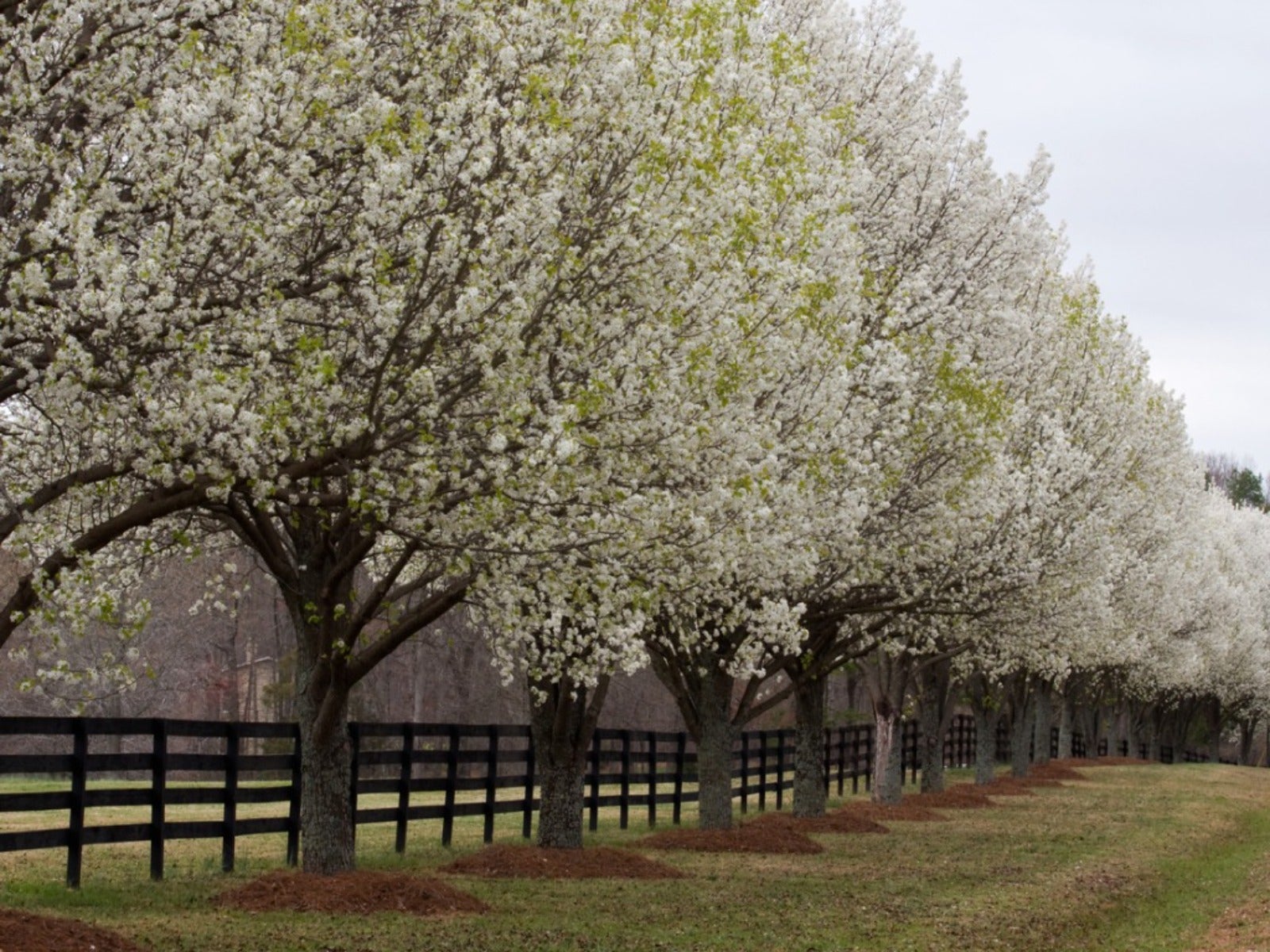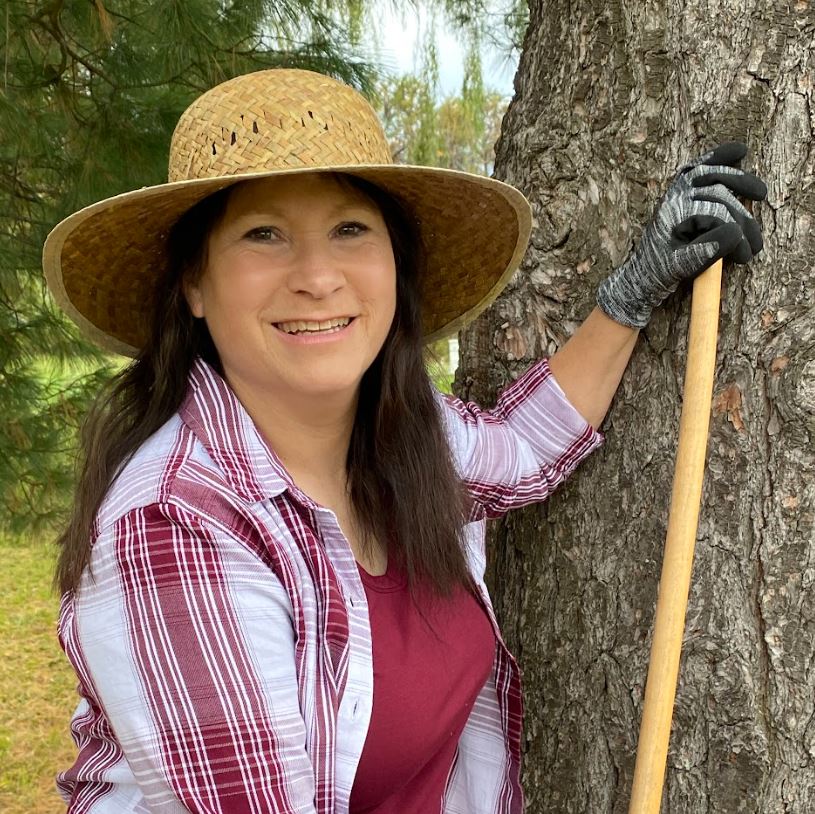Why Are Bradford Pear Trees So Bad They’ve Been Banned?


Have you heard? Bradford pear trees are now banned in Ohio. Residents of this state can no longer purchase, sell, or plant these ornamental trees as of January 1st, 2023. Many states are following suit with their own Bradford pear tree ban. Will your state be next?
Bradford Pear Tree Problems
Native to Asia, Bradford pears (Pyrus calleryana) were introduced into the U.S. in the early 20th century and became popular as ornamentals. At the time, it was not well known that these fast growing trees were prone to breakage in wind, ice, and rainstorms. To prevent this from happening, annual pruning to keep the canopy strong became a necessity.
Additionally, these trees frequently grow quite large and are relatively short lived, with most having a lifespan of less than 25 years. Yet, Bradford pear trees have a distinctive problem that many homeowners soon discovered.
Each spring, Bradford pears burst out with an abundance of beautiful white blossoms. Although they are considered beautiful landscape specimens, the flowers produced what many came to know as the Bradford pear tree smell. Best described as “fishy,” Bradford pears emit an unpleasant aroma when in bloom.
Are Bradford Pear Trees an Invasive Species
Naturally, it takes more than stinky flowers to get a tree banned. Once thought to be a sterile cultivar of the Callery pear species, Bradford pear trees are now considered invasive. While the flowers are not capable of self-pollination, Bradford pear trees can cross-pollinate with other Pyrus calleryana cultivars and produce viable seeds.
The fruit, which is considered inedible by human standards, is consumed by a number of birds and small animals. The seeds are then dispersed to other areas. Unlike the Bradford pear cultivar, which is propagated by cloning, the resultant trees which grow from the cross-pollinated seeds have large thorns which damage equipment and injure livestock.
Sometimes referred to as Callery pears, the offspring of Bradford pear trees are extremely hardy and well adapted to many ecosystems. Callery trees have invaded forests, roadsides, and open fields.
Sign up for the Gardening Know How newsletter today and receive a free copy of our e-book "How to Grow Delicious Tomatoes".
In doing so, the Bradford pear invasive offspring crowd out native species while providing little food for invertebrates. This in turn reduces the number of caterpillars available for birds looking to feed their young. This has a snowball effect as it moves up through the food chain, resulting in a loss of biodiversity.
Banning Bradford Pear Trees
Banning the sale, propagation, and planting of Bradford pear trees is one course of action for controlling their spread into the wild. Yet, even Ohio took five years for the legislation, which passed in 2018 to be implemented as law. Why the delay?
Unlike other invasive species such as Canada thistle and multiflora rose, the sale of Bradford pear trees was of economic importance to landscapers, growers, and nursery owners. Granting these Ohio businesses a five year window to reduce and phase out their stock of these trees helps prevent financial hardship throughout the industry.
Pennsylvania and South Carolina have followed Ohio's lead and enacted legislation which will ban the future sale of these trees starting in February and October of 2024, respectively. Will other states follow suit? Most likely.
Indiana has already started an educational campaign aimed at the consumer. By pointing out the damage to the environment caused by Callery pears, the hope is to reduce consumer demand and encourage nurseries to push more environmentally friendly alternatives. These include:
- American Hornbeam
- American Plum
- Blackgum
- Cherry
- Chokecherry
- Eastern Redbud
- Flowering Dogwood
- Hawthorn
- Serviceberry
- Yellowwood
For Ohio homeowners, existing Bradford trees are grandfathered in, meaning there is no requirement to remove these trees from one's property. However, organizations in Ohio and other states are providing incentives to cut down Bradford pear trees by offering free replacement trees.
It's advisable to check with your local extension office for the latest information on Bradford Pear Bounty programs. Apparently, word has spread about the many problems with Bradford pear trees. In some areas, bounty programs had to be suspended due to overwhelming response from the community.

Laura Miller has been gardening all her life. Holding a degree in Biology, Nutrition, and Agriculture, Laura's area of expertise is vegetables, herbs, and all things edible. She lives in Ohio.